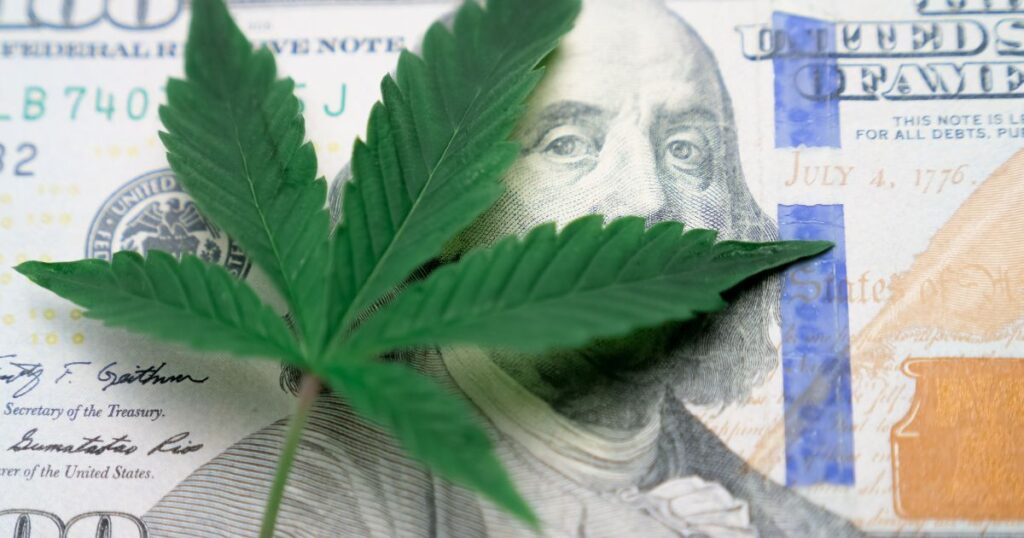The Los Angeles City Council’s unanimous decision to approve substantial fee increases for cannabis businesses couldn’t have come at a worse time. While city officials frame these hikes as necessary budget measures, the reality is different: they’re piling additional financial burdens on an industry already struggling with declining revenues, unfair competition, and regulatory challenges.
The timing reveals a fundamental disconnect between City Hall and the cannabis operators who’ve been working to build legitimate businesses within LA’s regulatory framework. These fee increases are not just poor timing—they demonstrate a troubling lack of understanding about the current state of the cannabis industry in Los Angeles.
The Financial Reality Behind the Fee Increases
The numbers tell a sad story about Los Angeles cannabis businesses. After four consecutive years of generating over $100 million in gross receipt taxes, revenue dropped to approximately $90 million in 2024. This decline isn’t just a statistical blip—it represents real businesses closing their doors, reducing operations, or struggling to maintain profitability.
Despite this clear evidence of industry decline, the City Council approved fee increases that will generate an additional $6 million annually for the Department of Cannabis Regulation.
License renewal fees jumped from $8,486 to $12,617, representing nearly a 50% increase. Temporary approval renewals rose from $4,233 to $6,294, while record renewals increased from $1,829 to $2,719.
For businesses already operating on thin margins, these increases represent more than just administrative costs. They’re potential death sentences for smaller operators who’ve invested everything in building compliant cannabis businesses.
An Industry Under Siege
The fee increases come as Los Angeles cannabis businesses face unprecedented challenges from multiple directions. The illicit cannabis market continues to undercut legal operators by offering products without the burden of taxes, fees, or regulatory compliance costs.
These illegal dispensaries don’t contribute to city coffers, yet they’re allowed to operate with minimal enforcement, creating an uneven playing field that legal businesses simply cannot compete on.
Legal cannabis businesses in Los Angeles face a complex web of financial obligations that their illegal competitors completely avoid.
On top of state sales and excise taxes, they must pay local gross receipts taxes ranging from 1% for testing labs and distributors up to 10% for retailers and delivery services.
They also navigate expensive compliance requirements, limited access to traditional banking services, and now these dramatically increased fees.
Luis Rivera’s situation perfectly illustrates the impossible position these businesses find themselves in. Previously operating three marijuana delivery businesses, Rivera has already been forced to close two due to financial pressures.
Now facing these new fee increases, he’s considering shuttering his remaining operation, Bonafide Delivery in Sun Valley. “There’s nowhere to pull the money from,” Rivera told the Los Angeles Times. “The fees will be disastrous.”
A City Council Out of Touch
The unanimous approval of these fee increases reveals how disconnected the City Council has become from the realities facing cannabis businesses.
While Councilmember Imelda Padilla described the decision as “difficult but necessary,” this characterization misses the larger context of an industry already struggling under excessive regulatory burdens and unfair competition.
The council’s decision-making process appears to prioritize short-term budget fixes over long-term industry sustainability. Rather than addressing the root causes of declining tax revenue they’ve chosen to extract more money from the businesses that are actually following the rules.
This highlights a fundamental misunderstanding of basic economics. When legitimate businesses are struggling and closing, the solution isn’t to increase their financial burden. It’s to create conditions that allow them to compete effectively and grow their operations.
Economic Impact Beyond Cannabis
The larger economic implications of these fee increases extend well beyond the cannabis industry. Legal cannabis businesses employ thousands of Los Angeles residents, pay property taxes, and contribute to their local communities. When these businesses close or reduce operations due to excessive fees, the city loses more than just cannabis tax revenue.
Each cannabis business closure represents lost jobs, reduced economic activity, and decreased property values in affected neighborhoods.
The ripple effects, consequently, touch suppliers, landlords, security companies, and countless other businesses that support the legal cannabis industry. However, the city’s decision to prioritize short-term fee revenue over long-term industry health ultimately threatens this entire economic ecosystem.
A Path Forward
Los Angeles should focus on creating conditions that help legitimate cannabis businesses thrive. Streamlining regulations, reducing compliance costs, and simplifying oversight are key steps that would support legal operators.
A healthy cannabis industry benefits everyone and requires a regulatory approach that prioritizes public safety over unnecessary bureaucracy. Simplifying the system would help level the playing field and ensure the success of compliant businesses.
The Los Angeles City Council’s decision to approve these fee increases represents exactly the wrong approach at the wrong time. Instead of supporting an industry that’s struggling against unfair competition and excessive regulation, they’ve chosen to pile on additional financial burdens that will likely force more legal operators out of business.
This shortsighted approach, however, threatens to undermine years of work in building a legitimate, regulated cannabis industry in Los Angeles.
Consequently, the real losers won’t just be cannabis businesses and their employees—it will also be the city itself, as tax revenue continues to decline and illegal operators gain an even greater competitive advantage.
Moreover, Los Angeles has the opportunity to lead the nation in creating a sustainable, equitable cannabis industry.
Unfortunately, these fee increases move the city in exactly the opposite direction by prioritizing short-term budget fixes over long-term economic health and industry sustainability.





















